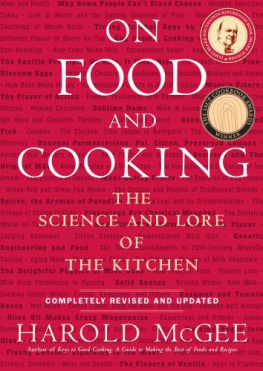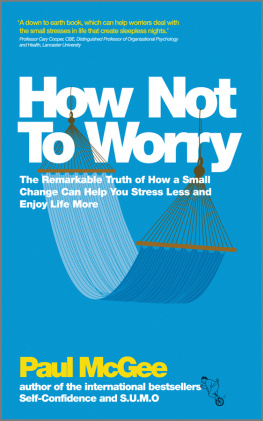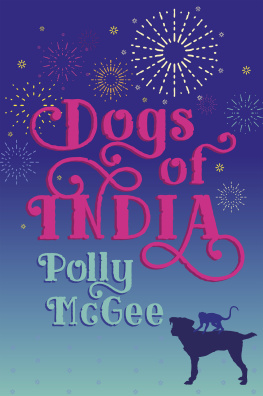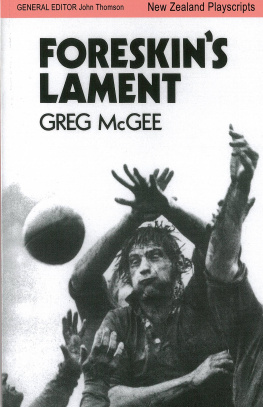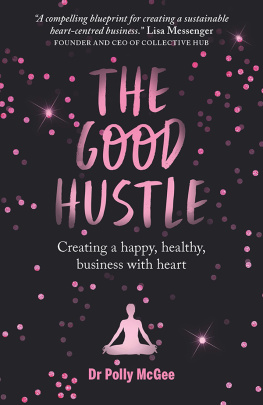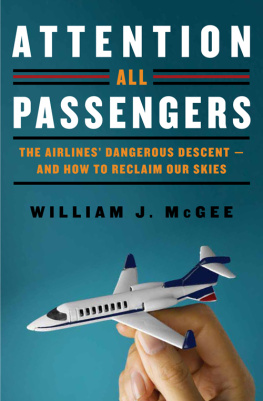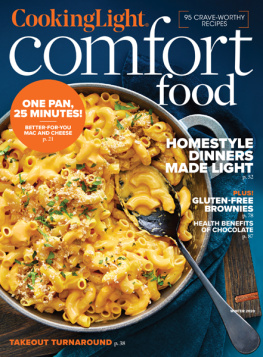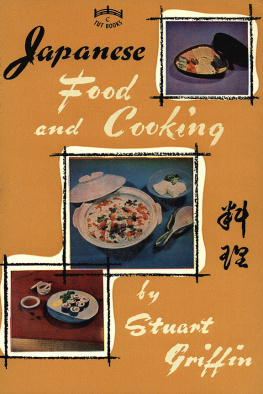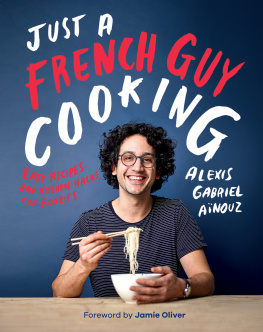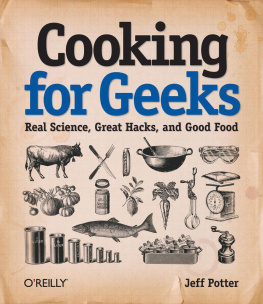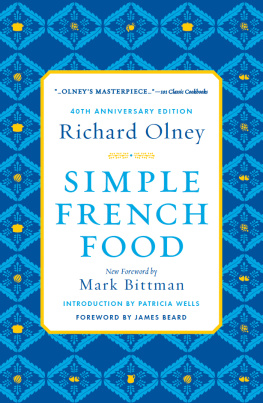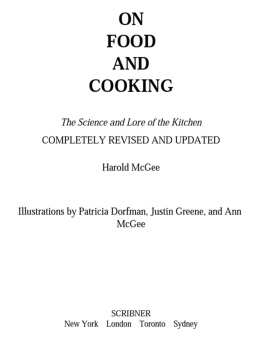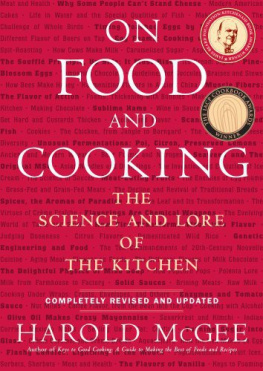McGee - On Food and Cooking: the Science and Lore of the Kitchen
Here you can read online McGee - On Food and Cooking: the Science and Lore of the Kitchen full text of the book (entire story) in english for free. Download pdf and epub, get meaning, cover and reviews about this ebook. year: 2004, publisher: Hodder & Stoughton Ltd, genre: Home and family. Description of the work, (preface) as well as reviews are available. Best literature library LitArk.com created for fans of good reading and offers a wide selection of genres:
Romance novel
Science fiction
Adventure
Detective
Science
History
Home and family
Prose
Art
Politics
Computer
Non-fiction
Religion
Business
Children
Humor
Choose a favorite category and find really read worthwhile books. Enjoy immersion in the world of imagination, feel the emotions of the characters or learn something new for yourself, make an fascinating discovery.
- Book:On Food and Cooking: the Science and Lore of the Kitchen
- Author:
- Publisher:Hodder & Stoughton Ltd
- Genre:
- Year:2004
- Rating:4 / 5
- Favourites:Add to favourites
- Your mark:
On Food and Cooking: the Science and Lore of the Kitchen: summary, description and annotation
We offer to read an annotation, description, summary or preface (depends on what the author of the book "On Food and Cooking: the Science and Lore of the Kitchen" wrote himself). If you haven't found the necessary information about the book — write in the comments, we will try to find it.
Harold McGees On Food and Cooking is a kitchen classic. Hailed by Time magazine as a minor masterpiece when it first appeared in 1984, On Food and Cooking is the bible to which food lovers and professional chefs worldwide turn for an understanding of where our foods come from, what exactly theyre made of, and how cooking transforms them into something new and delicious.Now, for its twentieth anniversary, Harold McGee has prepared a new, fully revised and updated edition of On Food and Cooking. He has rewritten the text almost completely, expanded it by two-thirds, and commissioned more than 100 new illustrations. As compulsively readable and engaging as ever, the new On Food and Cooking provides countless eye-opening insights into food, its preparation, and its enjoyment.On Food and Cooking pioneered the translation of technical food science into cook-friendly kitchen science and helped give birth to the inventive culinary movement known as molecular gastronomy. Though other books have now been written about kitchen science, On Food and Cooking remains unmatched in the accuracy, clarity, and thoroughness of its explanations, and the intriguing way in which it blends science with the historical evolution of foods and cooking techniques.Among the major themes addressed throughout this new edition are:Traditional and modern methods of food production and their influences on food qualityThe great diversity of methods by which people in different places and times have prepared the same ingredientsTips for selecting the best ingredients and preparing them successfullyThe particular substances that give foods their flavors and that give us pleasureOur evolving knowledge of the health benefits and risks of foodsOn Food and Cooking is an invaluable and monumental compendium of basic information about ingredients, cooking methods, and the pleasures of eating. It will delight and fascinate anyone who has ever cooked, savored, or wondered about food.
McGee: author's other books
Who wrote On Food and Cooking: the Science and Lore of the Kitchen? Find out the surname, the name of the author of the book and a list of all author's works by series.

